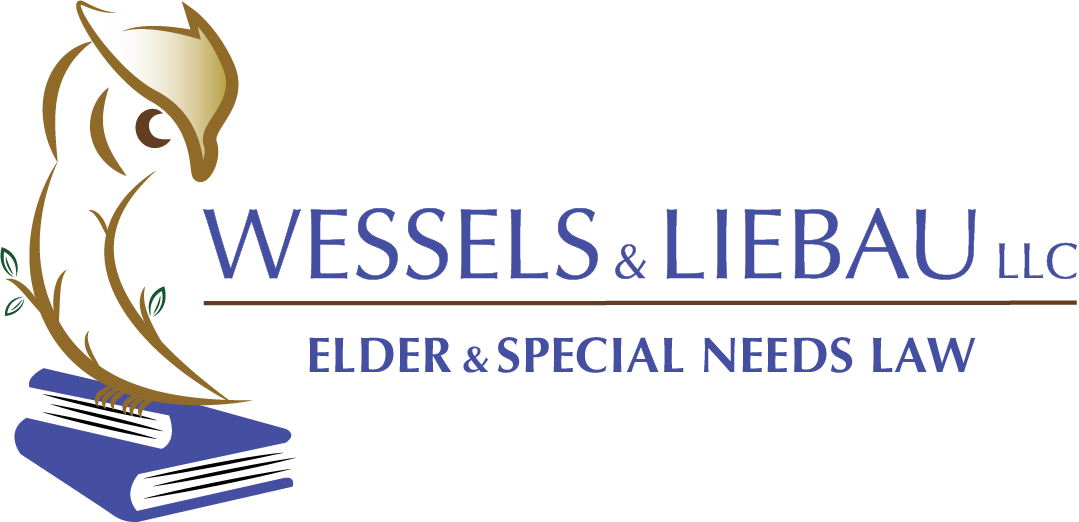In a Wiser 2021, Make Sure to Control What You Can.
On New Year’s Eve, my husband and I looked on with relief as 2020 left the stage. I would venture that so did many of you.
Over the course of a lifetime, I can remember more than one year where I was not at all sad to see it go. But those other years were more of an individual experience. It was related to one or more things that were personal to me, like the loss of a loved one or a difficult personal challenge. We all have had those years.
Bidding goodbye to 2020 with relief was a collective experience of our society as a whole. But let’s be honest: 2021 is not going to be a walk in the park either. We know that. And that is precisely the difference. On New Year’s Day in 2020, few of us would have predicted the terrible health crisis that was – even then – moving along on its course of destruction. But on New Year’s Day 2021, we know what we are facing. If not every detail, we certainly have a good idea. This pandemic is far from over and will continue well into the year.
Much of 2020 was spent in the “pivot.” We went from what we were used to, to what we were not used to but had to adapt to. We all did the best we could.
What we learned at Wessels & Liebau: At our office, the “pivot” helped us deliver services more effectively to our clients and we will continue many of these things forever. We learned how to hold client meetings by video. This has been a godsend to many caregivers for loved ones with dementia. Instead of having to find time to get to the lawyer’s office and find care for your loved one, or bring them along with the stress that involves for them, it is now quite simple to have the same conversations over video conferencing, with less stress. I have had more than one client say how nice it was not to have to worry about traffic or feel the need to get dressed for business. We “met” with some clients while they were at their cottages! We miss what everyone misses in this time, the opportunity to meet over a cup of coffee, shake hands, and visit in person. We do feel that we will be able to have those experiences once again before too long. But we will continue to offer video meetings forever.
We also got better at working remotely. Even when the pandemic is subsided, Wisconsin will still have bad weather. But now we know we can all get our jobs done from home, so our staff will not have to risk icy drives, and there will be fewer times we have to make the decision to close the office due to weather. Also, we learned to use parts of our case management system that make it easier for us to share documents with our clients securely, and vice versa.
“Zoom court” helped to save a lot of the time that is taken up in travel and waiting. We are hopeful that video conferencing will become a permanent fixture for non-essential court proceedings like scheduling conferences and uncontested matters. It saves our clients money, and makes us more efficient.
We creatively handled the need to get documents signed, with a variety of options depending on the document and the situation.
So many things that happened this year did not have easy answers from the legal standpoint. But we learned that being creative and persistent gets problems solved even when the solutions are not along the traditional paths. Our long-standing firm philosophy that it is more important to meet our clients where they are, than to be a traditional, formal firm that seeks to impress our clients with big words and complicated documents, served us especially well this year.
How we make the most of the lessons from 2020: It’s time to take what we all learned from the pivot and turn it into an advantage. Here are some ways I see this happening for our clients and other readers:
Planning ahead for long-term care: The devastating havoc that COVID-19 wreaked in long-term care facilities had sweeping effects on our clients who have a loved one with dementia. Clients with loved ones in facilities faced terrible uncertainty regarding the health of their loved ones, and had to make decisions without the benefit of being involved in person. Residents’ opportunities to visit with loved ones were severely restricted and at times cut off altogether. Seeing this uncertainty, quite a few of our caretaker spouse clients who had been planning to admit their loved one to a facility in 2020 chose to delay that admission.
This is where careful advance planning can provide couples and caregiver family members with the most flexibility. Understanding ahead of time how important programs like Family Care will help to provide assistance to people staying at home, and to compare that with the system that provides care in nursing homes (Institutional Medicaid) helps people make better choices. It also helps to plan ahead well before any admission to residential care, since this is when asset protection can be maximized. Getting a Family Care Snapshot at the right time can save tens of thousands of dollars and more.
If you are one of the many people who delayed seeking residential long-term care for a loved one in 2020, and you have not already visited with an elder law attorney, now is the time to do so. Also, remember that if the work of caregiving is longer than you planned to is affecting your health, or even if you just want some support, the Alzheimer’s Association has a free helpline ( 800-272-3900) and free video support programs.
Understanding your estate plan: One of the recurring issues in 2020 was people who realized that even though they had estate planning in place, they had no idea how to use it. Panicked calls from family members who needed to understand how a power of attorney worked, or what the documents actually meant, or what needed to happen when a loved one died, were extremely common this year. Whether or not we had initially done the planning for the clients, the 2020 clients still had questions about what the papers meant, since there is a huge difference between the important initial steps of completing the documents, having them explained by the lawyer, then walking out with the fresh packet of signed papers, and actually using them.
If you have not taken time to think through how your documents work, seek guidance from your attorney, or consider whether or not they are still reflective of your wishes and choices, 2021 is the time to do that.
Making an estate plan if you do not have it: For years, we have tried to get the message out that everyone over 18 needs an estate plan. At a minimum, the “living” documents like powers of attorney for health care and finances are necessary, even for young adults who don’t have an estate to worry about. The alternative if that young adult contracts a severe case of COVID and does not have powers of attorney is a costly and stressful court proceeding for guardianship in order to make health care decisions. The article here helps you understand more about this.
We think that message is starting to sink in. Our anecdotal experience is that more people focused on getting estate plans in place in 2020 than in prior years. If you were not one of those people who did it in 2020, you will want to get it done in 2021. Start by reading the article linked in the paragraph above, then move on to the article here.
Understanding the rights of residents in long term care facilities: Families with loved ones already in assisted living facilities or nursing homes were hit particularly hard with the effects of the pandemic. Many of the traditional “residents rights” were upended due to the need to protect residents and staff from the highly contagious disease. At the same time, it became particularly important for people to understand what resident’s rights were still supposed to be protected even in the pandemic. We do not think that these concerns will go away in 2021. Valuable free resources exist for families, including:
Wisconsin’s long term care Ombudsman program, which protects residents’ rights in nursing home, assisted living, ant other settings.
The National Consumer Voice for Quality Long Term Care
Disability Rights Wisconsin Protection and Advocacy program for people with disabilities.
The National Consumer Voice in particular has a wealth of information on how COVID impacts residential long term care.
People on Medicaid need to prepare for the state to resume recertifications and terminations: During the pandemic, administration of the program focused on the COVID crisis and suspended some of the routine procedures that apply to most people on Medicaid, such as requiring a 6 month or annual review of a person’s eligibility, making adjustments to the cost-sharing for an individual, or issuing termination notices for people who had lost eligibility due to having more than the allowable amount of resources, or due to a divestment. This suspension is not indefinite. Emergency rules suspending these procedures are set to expire on January 31, 2021. While it is possible that there may be an extension of the leniency past January 31, at some point the rules will be enforced again. If you, your spouse or a 6-footloved one is on Medicaid, it is a good time to be prepared so that you do not have a crisis when the rules are back in force. An elder law attorney can help you plan for this.
Going into 2021 with eyes open, the future looks a bit more in our grasp. I hope that to be true for all of us.
(Oh yes, and please wear a mask, wash your hands, keep a 6 foot distance, and be patient with the world.)




